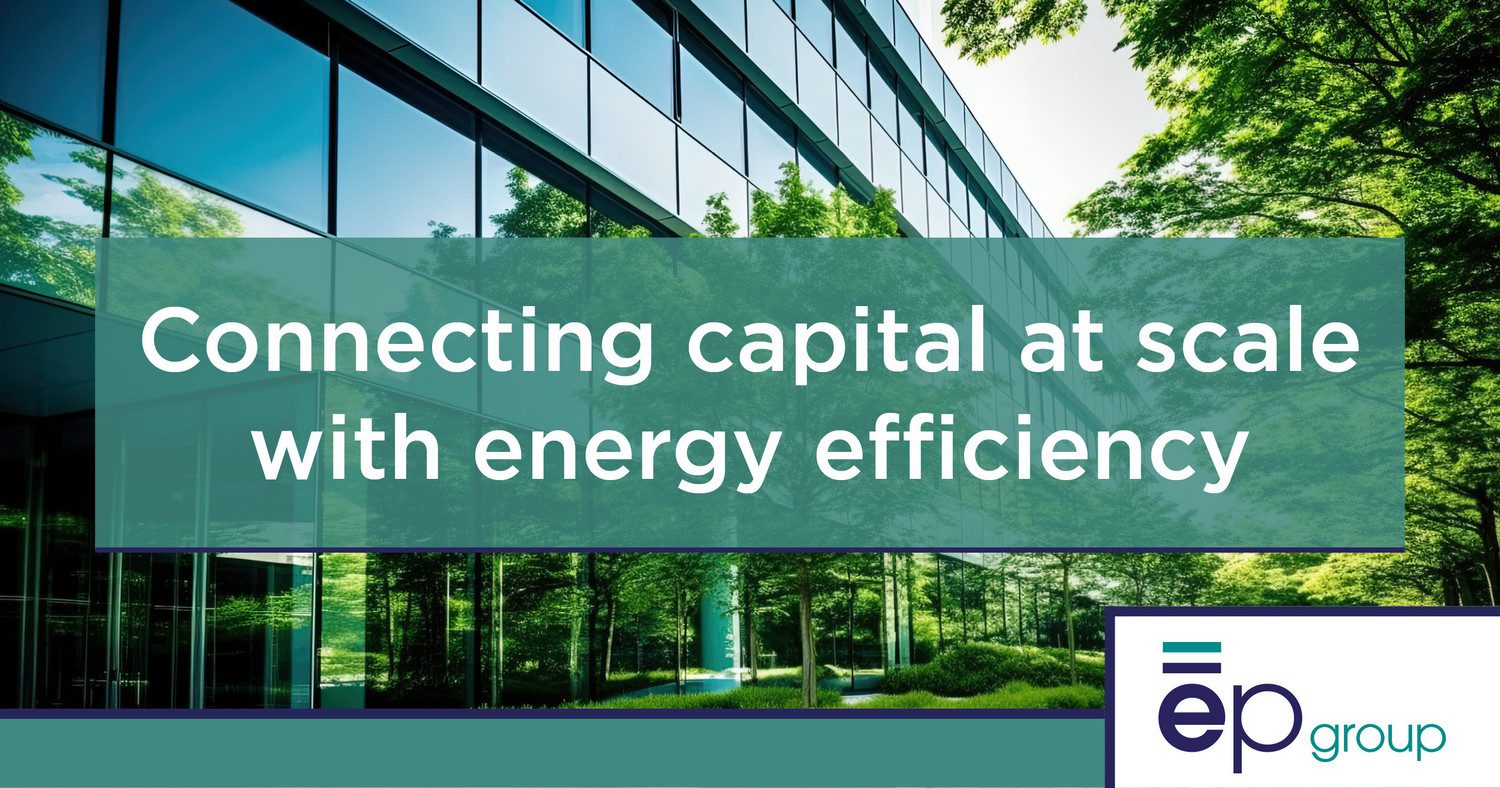- To scale energy efficiency to the levels we need in Europe alone requires €270 billion of additional investment each year while the finance gap to achieve ‘affordable and clean energy for all’ is circa $1 trillion
- How do we meaningfully impact the transition to a net zero? By investing in SMEs working in relevant areas
- ep group helps investors make impact-focused investments into scalable environmental solutions, helping to build a regenerative economy
This summer, the Energy Efficiency Financial Institutions Group, EEFIG, will close after ten years of pioneering work aimed at scaling investment into energy efficiency and be replaced by a new energy efficiency finance coalition.
Since its inception, EEFIG has put the need to scale up investment into energy efficiency firmly on the agenda; worked to identify barriers and deliver solutions; and increased the attention paid to energy efficiency by financial institutions.
ep group has been closely involved in EEFIG since 2016, authoring the Underwriting Toolkit in 2016/17 and leading and participating in several Working Groups, which amongst other things have provided input into the EU Taxonomy and looked at how financial institutions could operationalise the energy efficiency first principle.
This latter working group could, in my opinion, be one of the most important outputs of EEFIG as it looks at how financial institutions can change their processes to ensure cost-effective energy efficiency opportunities are not missed in investment or lending decisions, and identifies tools that can help them do that.
What is needed?
When I first set up what is now ep consultancy, its purpose was – and still is – to accelerate investment into energy efficiency and the EEFIG work represents one strand of our impact in this critical area.
It is clear that the key to achieving a sustainable future, and moving beyond sustainability into a regenerative economy, is scaling investment into the solutions to our multiple environmental problems. In the most part, these solutions already exist but we need to invest to scale them up, and we need to do this quickly because the investment needs are huge.
To scale energy efficiency to the levels we need in Europe alone requires €270 billion additional investment each year. Beyond energy efficiency, the UN estimates that the financing gap to achieve the Sustainable Development Goal 7 ‘affordable and clean energy for all’, is circa $1 trillion. And that is only energy, we also need to consider reversing the loss of biodiversity.
How do we meaningfully impact the transition to net zero?
It was understanding the size of these investment needs, as well as the scale of the market opportunities that they represent, that influenced the development of ep group to focus on scale-up. The group is dedicated to meaningfully impacting the transition to a net zero and ultimately a regenerative economy and that means scaling. How do we do that? We invest in SMEs working in areas relevant to the transition and grow them and the opportunities they create.

